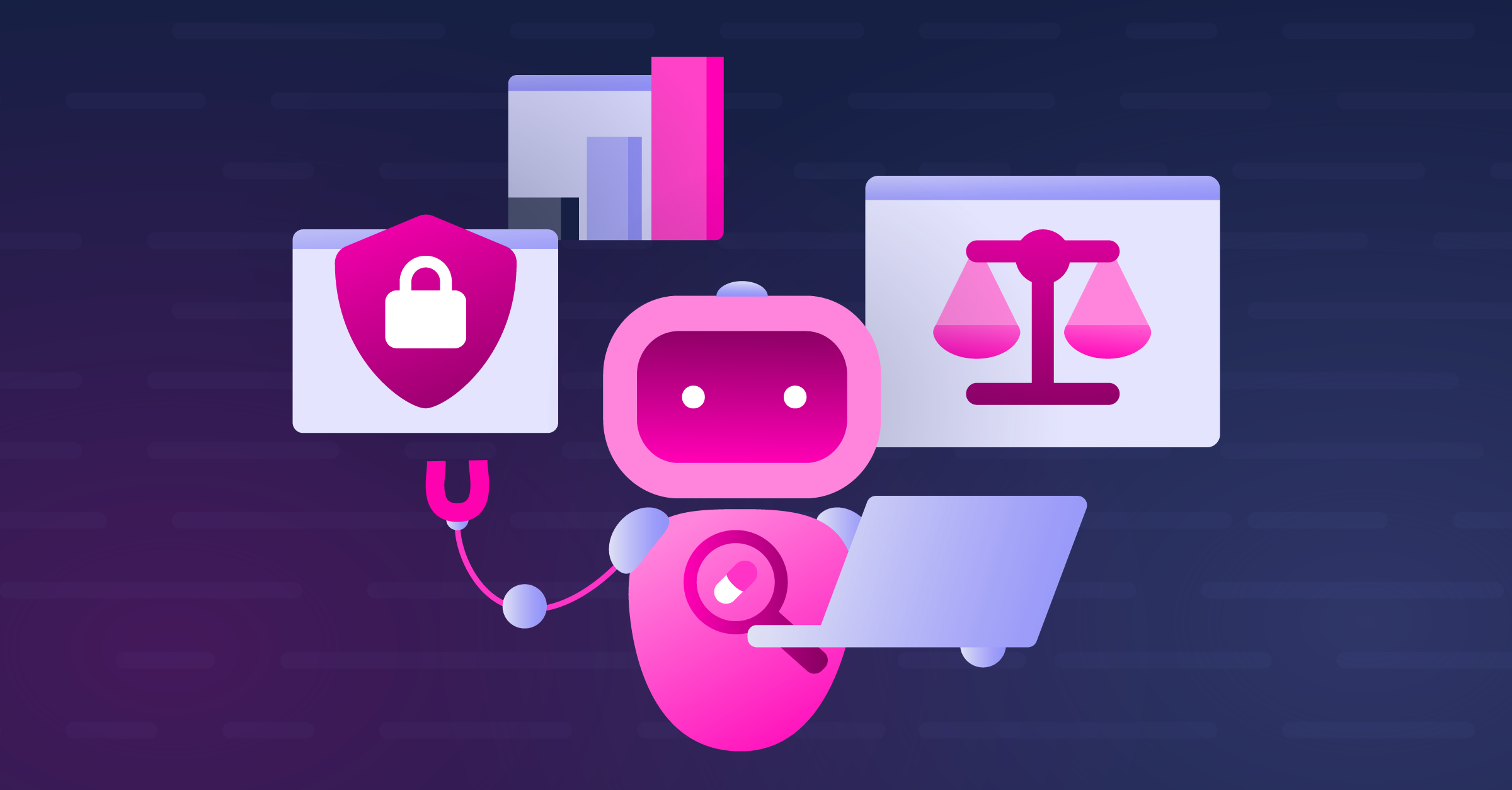Revolutionizing Pharma: The Strategic Guide to AI Deployment
Strategies for Leveraging Artificial Intelligence in Drug Discovery and Beyond

As the pharmaceutical industry is pushing to deliver new and better drugs while racing against time and budget constraints, it is becoming crucial to not just use artificial intelligence (AI) but truly maximize its potential. Currently, it is projected that AI could add between $60 billion and $110 billion in value each year to the pharmaceutical industry. As the stakes get higher, it's important for leaders in the field to fully grasp the subtleties and the immense possibilities AI brings to the table.
In our previous post, we discussed the common challenges when implementing AI and machine learning (ML). Today, we will discuss how to practically shift AI from the lab bench to the business side, particularly focusing on making AI tech market-ready in the pharmaceutical world.
Let’s start simple. A well-thought-out AI roadmap, with specific and measurable milestones, is key to integrating AI smoothly into pharma operations. Your plan should be flexible enough to adapt to new tech and market trends but detailed enough to guide you to your strategic goals. By clearly defining AI’s role and focusing on areas like drug discovery and development, your team can tap into the efficiencies that many experts are promising.
AI has already cut down the time for early-stage drug discovery by 25%.
With this groundwork laid, let’s dive into some vital strategies for AI deployment in drug discovery.
Adapt and Innovate
Adopting AI is a significant investment in both money and resources. It often means reshaping workflows, improving data management, and creating new communication channels across departments. Overcoming internal resistance to change is also part of the journey, requiring clear demonstration of AI's benefits and involving your team in the transition.
Things to consider:
- Workflow Design: To fully benefit from AI, it will be important to redesign traditional workflows. This tech can speed up everything from drug design to clinical trials by processing complex datasets more efficiently.
- Data Management: AI thrives on data. Focus on building robust systems to manage and analyze a vast array of data types, ensuring top-notch data governance and quality.
- Cross-Departmental Collaboration: AI integration works best when departments like R&D and IT talk and work together. Creating opportunities for teams to work across disciplines helps everyone understand and leverage AI’s potential.
- Change Management: Overcoming skepticism inside the company is key. Regular training and clear communication can show everyone the real benefits of AI.
- Leadership and Vision: Strong leadership is crucial. Leaders should align AI initiatives with business goals, making AI a core part of our future strategy.
By addressing these areas, you can not only adapt but also innovate, enhancing your drug discovery and development processes for better efficiency and competitive advantage.
Invest in Your Tech Infrastructure
A solid tech foundation is essential for AI to work in the pharmaceutical sector. This infrastructure needs to handle heavy data demands and scale up as needed.
Essentials include:
- High-Performance Computing Resources: These are critical for managing large datasets and running complex AI algorithms efficiently, which is a big deal for both drug discovery and clinical trials.
- Secure Cloud Storage Solutions: With the huge amounts of data AI uses, secure and scalable cloud storage is a must to meet regulatory standards.
- Advanced Data Analytics Tools: These tools are crucial for making sense of complex data and improving decision-making at different stages of pharma operations.
Things to keep in mind when building your infrastructure:
- Scalability: Your setup should grow easily with your AI needs without disrupting other business areas. It is also important to consider the time it will take to build the infrastructure, which could impact resourcing in other areas of your business.
- Security: Strong cybersecurity is non-negotiable to protect sensitive data and comply with international regulations.
- Integration: Smooth integration with existing systems is crucial to maintaining streamlined operations and maximizing the utility of new AI technologies.
Choosing the right platform also means looking at vendor support and the strength of the community around it, which can provide additional resources and reassurance for the long haul. Additionally, consider any new tech’s ability to process large datasets and support advanced analytics capabilities. With these in mind you’ll be better able to support your current and future AI applications, and improve your overall efficiency.
Encourage Teamwork Across Disciplines
Bringing together experts from AI tech, data science, biology, clinical sectors, and business operations is key, though it's often put on the back burner because it requires a great deal of time and effort. However, these interdisciplinary teams can fast-track innovation and provide access to cutting-edge research and tools.
Staying open to, and prioritizing, partnerships and strategic collaborations can also help you navigate the complex AI landscape more effectively, from development and implementation to regulatory compliance and market access. In order to maintain the validity and accuracy of AI and ML models it is vital to integrate different expertise and lenses into your approach.
Navigate the Regulatory Maze with Confidence
Successfully folding AI into pharma also means navigating national and international regulations carefully to ensure patient safety and data integrity.
Strategies for staying compliant:
- Regulatory Expertise: Keep up with regulations by using specialists who understand the legal landscape.
- Proactive Engagement: Talk to regulatory bodies early to grasp requirements, anticipate challenges, and tweak your approach as needed.
- Transparency: Being clear about your AI methods and data handling builds trust and ensures your AI is seen as safe and reliable.
Set Strong Governance Policies
Governance is crucial for addressing the ethical, legal, and operational sides of AI deployment. Make sure you have clear policies for data privacy, algorithm transparency, and ethics. These should align with regulatory demands and help foster a culture of trust and accountability. Good governance also sets standards for data use, AI model validation, and ongoing monitoring to keep AI systems in check and free from biases or risks.
In the U.S., there are voluntary commitments to AI security and privacy compliance standards. While federal regulations are still catching up, some states are moving to enforce sector-specific regulations. Within the EU, there is an EU AI Act Compliance Checker which allows companies to better understand whether or not their AI system will be subject to regulations. As the Act is still undergoing negotiations, staying up to date is crucial.
Establish a Solid Data Foundation
Finally, for AI to revolutionize drug discovery, it's crucial to focus on the quality and integration of data. At DrugBank we might be a bit biased, but we believe high-quality, and highly-usable data are among the most vital areas you could focus on. Good research and confident decisions can’t be done without it.
A few pieces to keep in mind:
- Ensure Data Quality: High quality data is crucial for training AI models that are both reliable and effective. Regular audits and strict data validation processes are your best tools to ensure you're always working with the best data possible.
- Data Integration: By bringing together diverse datasets—from clinical trials to genetic info and beyond—you give your AI a fuller picture, boosting its ability to make accurate predictions. Leveraging modern integration tools not only simplifies this process but also enhances data accuracy and timeliness.
- Standardization: Keeping data formats consistent makes it easier for AI systems to process and analyze information.
- Continuous Monitoring: Regular data audits help maintain data integrity and highlight areas for improvement, keeping the AI system efficient and effective.
By prioritizing data quality and integration, you can empower your AI platforms, leading to more innovative and accurate drug discovery outcomes. Check out our data quality part blog series for an in-depth exploration of data quality and the five most important elements we think you need to consider when measuring quality in your data.
The move to AI in pharma isn’t just about adopting new tech—it's about transforming business models and processes to fit the new digital age. Companies proactive in adapting to AI will likely lead in innovation and efficiency. Diving deep into AI now is crucial for staying ahead in medical innovation and patient care.
Stay informed by signing up for our newsletter, where you'll gain early access to the latest insights, trends, and breakthroughs in drug discovery, powered by cutting-edge data and analysis from industry-leading experts.
